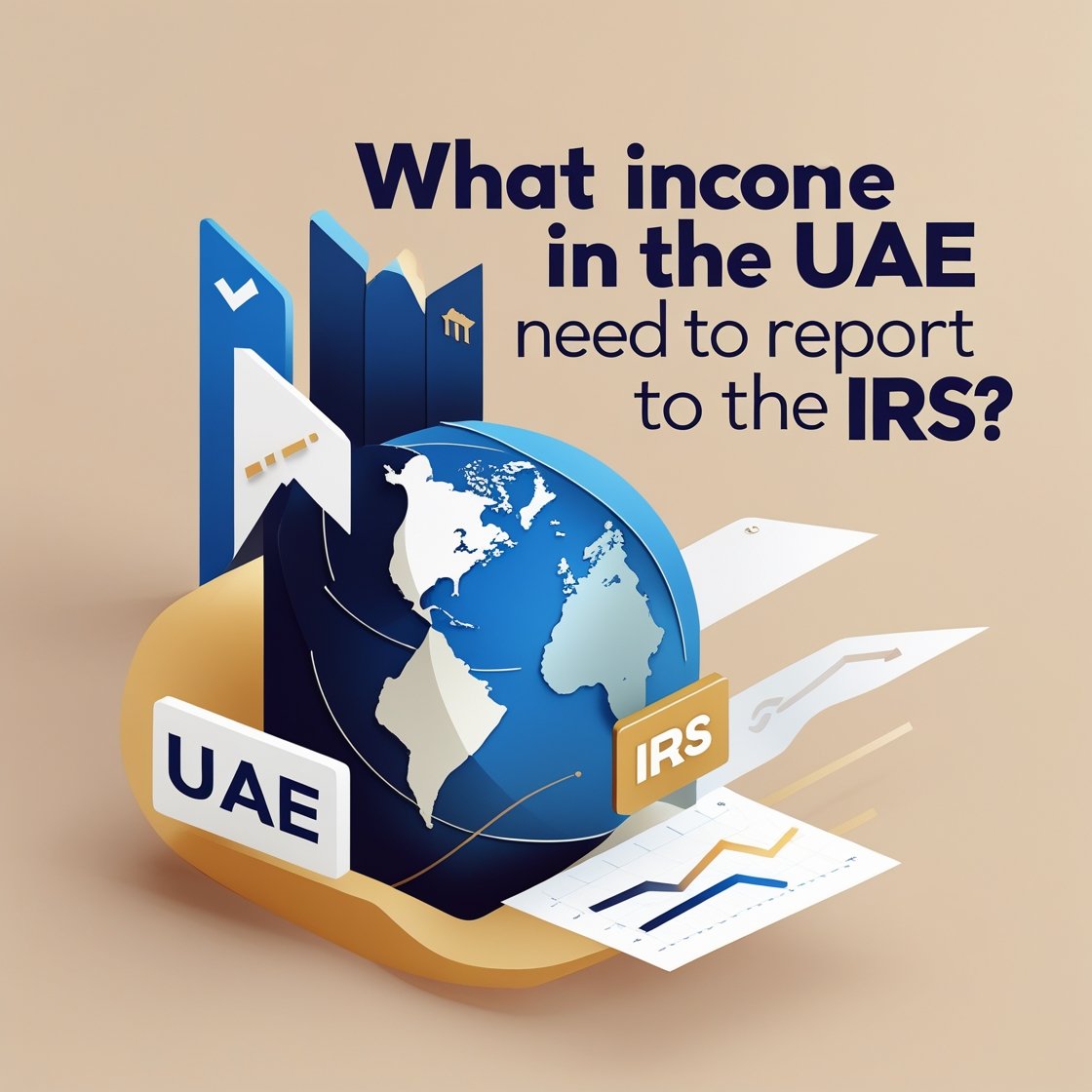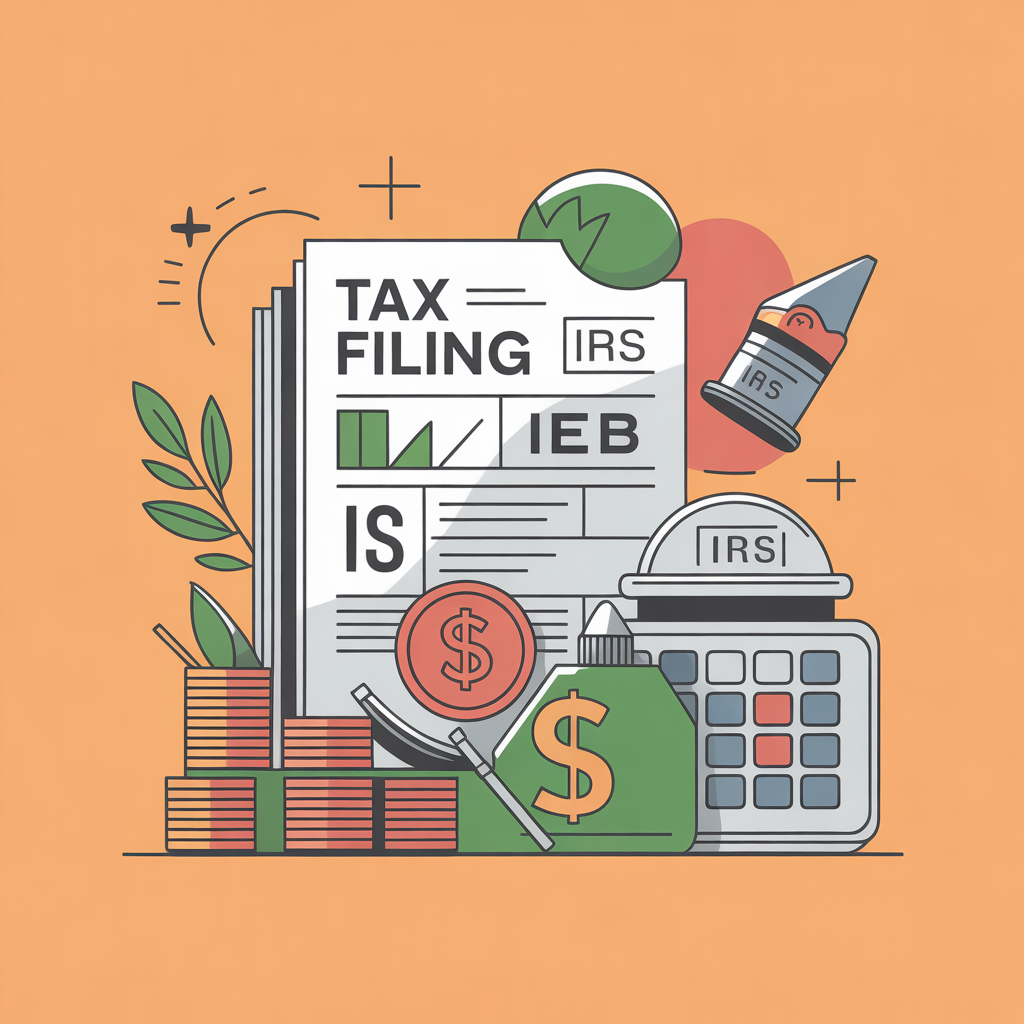Living in the UAE comes with plenty of perks: tax-free salaries, year-round sunshine, and a vibrant expat community. But if you’re a U.S. citizen or Green Card holder, one thing doesn’t change no matter where you live: you still have to report your income to the IRS.
Let’s break down what types of income you need to report and what to watch out for when filing your U.S. taxes from the UAE.
Why Do U.S. Expats in the UAE Need to File U.S. Taxes?
The United States is one of the only countries in the world that taxes based on citizenship, not just residency. That means if you’re a U.S. citizen or Green Card holder, you are legally required to file a U.S. tax return every year, even if you live abroad — including in the tax-friendly UAE.
What Income Must You Report?
Here’s a rundown of income that must be reported to the IRS, even if it’s earned in the UAE:
- Employment Income (Salary/Wages)
If you’re working in Dubai, Abu Dhabi, or anywhere else in the UAE and earning a salary, you must report your total gross income on your U.S. tax return. This applies whether you’re working for a company or employed by a government entity.
Good news: You may qualify for the Foreign Earned Income Exclusion (FEIE) or Foreign Tax Credit (FTC) to reduce or eliminate double taxation. More on that below.
- Self-Employment or Freelance Income
Running a business or freelancing in the UAE? You need to report all self-employment income, regardless of whether it’s earned in USD or AED.
Note: If you earn $400 or more in self-employment income, you are also subject to U.S. self-employment tax, unless you’re paying into a foreign social security system.
- Rental Income (U.S. or Foreign)
Own property in the U.S., the UAE, or elsewhere? All rental income, even if earned abroad, must be reported. Be sure to also claim allowable expenses like maintenance, mortgage interest, or depreciation.
- Investment Income
Interest, dividends, capital gains, and other passive income from U.S. or foreign investments must be included in your U.S. tax return.
Tip: If you have investments in UAE-based banks or funds, you may also have to file FBAR (FinCEN Form 114) and possibly FATCA Form 8938.
- Foreign Bank Account Interest
Even though many UAE bank accounts offer little to no interest, if you earn any interest income — even small amounts — it must be reported.
- UAE Government or Public Sector Jobs
If you’re working for a government entity in the UAE, special tax rules may apply. In some cases, income earned from foreign governments cannot be excluded under the FEIE and must be fully taxed by the U.S.
What Income Can Be Excluded?
Foreign Earned Income Exclusion (FEIE)
In 2024, you can exclude up to $126,500 of foreign earned income if you:
- Have a tax home in a foreign country, and
- Meet either the Physical Presence Test (330 days abroad in a 12-month period), or
- The Bona Fide Residence Test (you’ve lived abroad for an entire tax year with no immediate plans to return).
Foreign Housing Exclusion
You may also be able to deduct qualified housing expenses, like rent and utilities, if you live in a high-cost city like Dubai or Abu Dhabi.
Do You Need to File Additional Forms?
If you’re reporting foreign income, you may also need to file:
- Form 2555 – to claim the Foreign Earned Income Exclusion
- Form 1116 – to claim the Foreign Tax Credit
- FBAR (FinCEN Form 114) – if your foreign bank accounts total over $10,000 at any time in the year
- Form 8938 (FATCA) – if your foreign financial assets exceed certain thresholds
Final Thoughts
Just because the UAE doesn’t tax your income doesn’t mean the IRS lets you off the hook. As a U.S. citizen living abroad, you’re still responsible for reporting your worldwide income — but with the right exclusions and credits, you can usually avoid double taxation.
Need help filing your expat taxes? We specialize in helping Americans in the UAE stay compliant and save money. Reach out today for a free consultation.
Contact us: +1 (972)-996-6644
Email us : info@theriwa.com Visit our website : https://theriwa.com/






